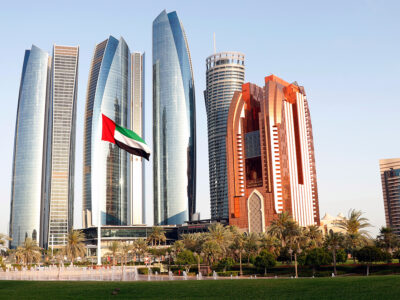The UAE’s aggressive development plans and the influx of new businesses are driving workforce demand across industries, with the oil and gas sector leading the hiring spree with a massive 112 per cent surge in 2024, an industry report revealed.
The sector is projected to see a significant jump in hiring across roles in 2025 as well, fuelled by the rising global energy demands.
Hiring for blue-collar jobs is seeing the maximum growth at 69 per cent, reflecting the UAE’s ongoing mega residential and commercial infrastructure projects slated for delivery through 2026-2029, the report by Innovations Group, the Dubai-based leading recruitment and staffing solutions company, said.
Hiring for white-collar jobs, however, faces challenges stemming from centralisation trends by international firms establishing operations in the UAE.
“With the [UAE] government’s push for economic diversification and infrastructure development, the industrial sector is booming, attracting a wave of new businesses across various industries, leading to a massive hiring spree across sectors,” Nikhil Nanda, Director, Innovations Group, told Arabian Business.
“Recruitment agencies such as Innovations Group are seeing massive demand from both employers and prospective employee candidates for hiring across roles and sectors, and the trend is expected to continue for many more months, and even years,” he said.
Nanda, however, said sourcing talent from diverse regions has to be a key strategy to address skills mismatches and to ensure alignment with the specific requirements of UAE-based projects.
Industry experts said UAE employers also must differentiate themselves through competitive incentives, strong work cultures and employee support strategies to attract and retain talent.

Sectors driving UAE employment
Besides the oil & gas sector, construction, banking and finance, fintech and logistics are the other booming sectors for hiring in the country.
While the aggressive expansion of residential and commercial real estate projects is fuelling massive hiring in the real estate sector, UAE’s strong economic recovery, coupled with its digitalisation and innovation drives are creating a massive number of jobs in the banking, finance and fintech sectors.
As for the logistics and port sector, it’s a classic case of the region’s loss being UAE’s gain.
“Geopolitical instability in the Middle East has redirected cargo traffic through UAE ports, leading to increased operational and maintenance (O&M) activities.
“This has created additional opportunities in the logistics and port management sectors,” the Innovations Group report said.
It, however, said despite a growing number of positions in the sector, hires decreased by 21 per cent last year, pointing to mobilisation and skill-matching issues.
“Despite global logistics challenges, this sector’s resilience presents a compelling opportunity for the UAE,” Nanda said.
Human resource experts and industry players said the UAE’s job market continues to evolve with a surge in demand for both blue-collar and entry-level roles, driven by an aggressive real estate push and evolving market dynamics.
The demand for construction workers has surged due to off-plan residential sales hitting record highs, driving construction activity to peak levels, they said.

White-collar job market faces challenges
Hiring firms said contrary to the boom in blue-collar job hiring, white collar job market in the UAE is facing challenges, mainly on account of the centralisation trends by international firms.
Several international companies are centralisíng support functions such as customer service, finance, etc, in their global hubs outside the UAE, leading to a fall in hiring in the segment, they said.
The Innovations Group report estimated a 21 per cent decline in white-collar hiring last year, despite a modest increase in job categories and total positions.
However, sales and business development positions remain in demand due to their people-dependent nature, which is essential for new businesses entering the UAE market.
The entry-level hiring in the white-collar segment is also witnessing a surge, with roles such as receptionists, front office staff, and warehouse associates seeing increased demand due to the establishment of new businesses in the country.
Nanda said this trend is expected to continue going forward as well, as businesses entering the UAE require foundational support staff to initiate operations.
He, however, said addressing recruitment challenges through specialised agencies and strategic approaches will be critical in capitalising on these opportunities.
“Recruitment agencies can address hiring inefficiencies by managing global talent pools, mobilisation processes, and compliance requirements,” he said.








